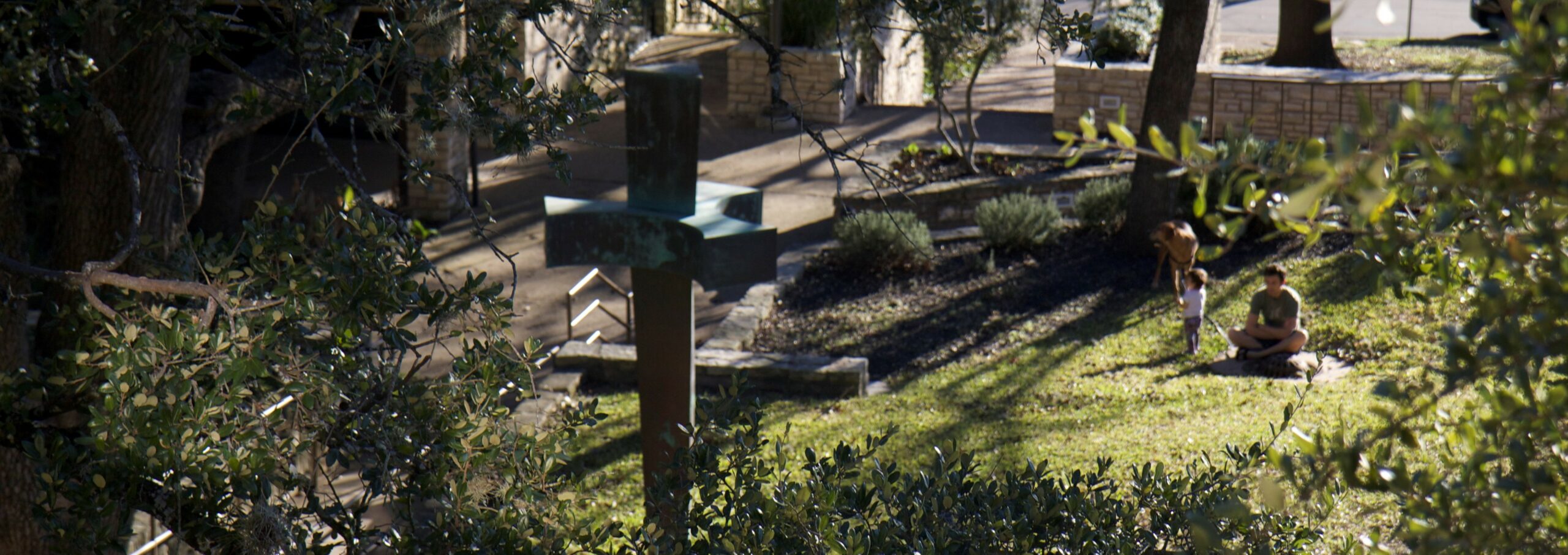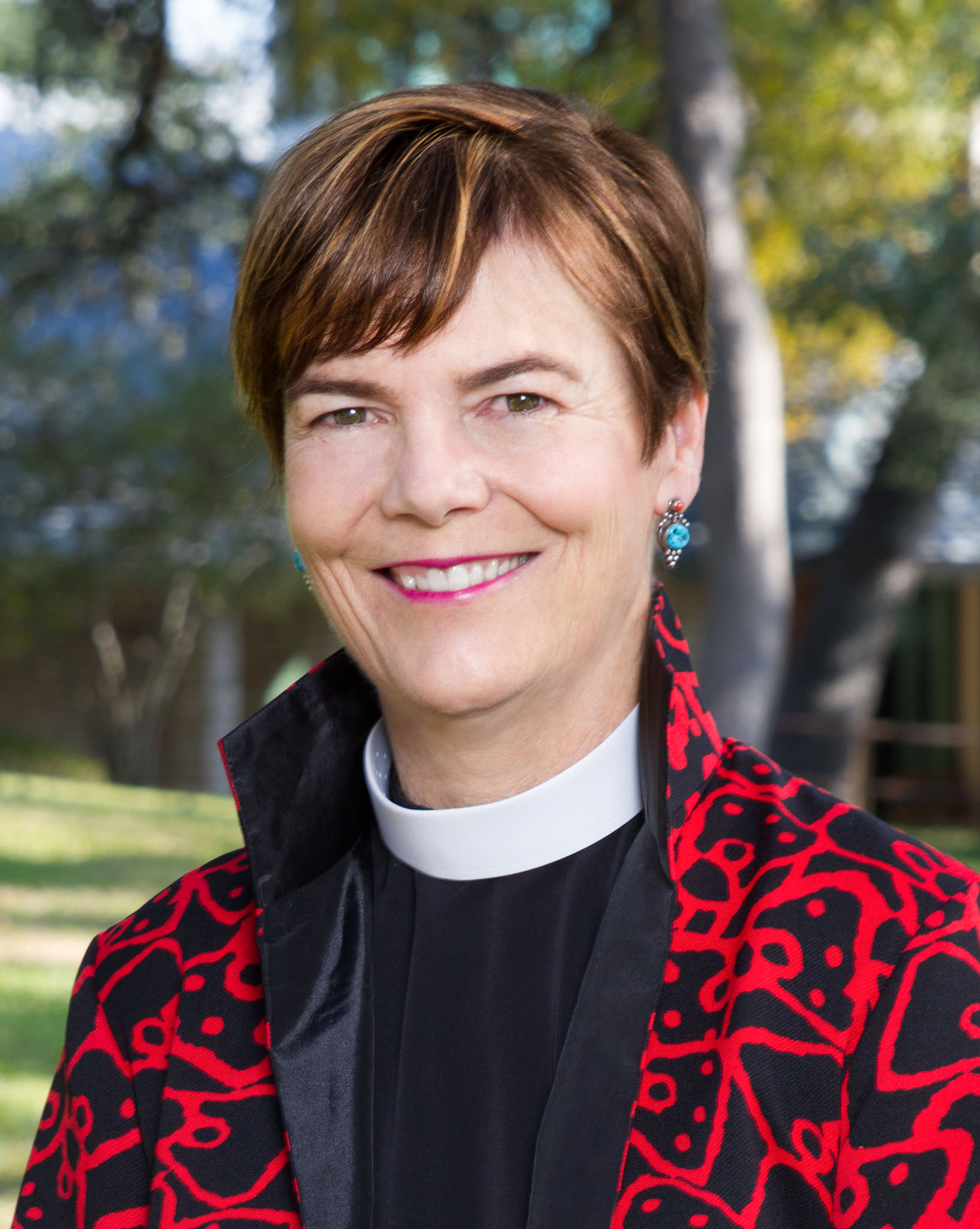By the Very Rev. Cynthia Briggs Kittredge
My favorite lifetime stationery store is Bob Slate Stationer in Cambridge, Massachusetts.
I have always been a stationery junkie. In the early 1980s when my husband, Frank, and I were first married, I was a student at Harvard Divinity School, and I would go to Bob Slate for binders and notebooks and to find things I didn’t know I needed.
In the pen section, which was behind the counter, they would keep a thick binder with samples of each brand of ink in every color. What fun to page through and consider the many colors. Who knew there were so many versions of Royal Blue?
Founded in 1930, Bob Slate has had its hard times, even going out of business in 2009. Last month I was in Cambridge attending a retreat at the monastery of the Society of Saint John the Evangelist. I wanted to visit my favorite stationary store, so I checked the website to see what time Bob Slate opened. There, on the front page, was descriptive phrase for this store that jumped out at me:
“An Immersive Analog Experience”
I turned the phrase over in my mind. It was irresistible new jargon for me. This is how you need to describe something “real” for someone experiencing it online.
It made me wonder: how much of our Christian practice is an immersive analog experience?
Consider first “Analog.” This would be people reading out of a book in their own voice, singing songs, standing and sitting and kneeling in pews next to one another, walking forward one by one. This is analog for certain.
And “immersive?” The sacred canopy, the tapestry of scriptural motifs, water, passage, silence, displacement, call, trickery, blindness, dryness, marriage. The Holy, Holy, Holy, Lord God of Hosts, evoked in the wood and limestone and Saltillo tile of our sacred spaces.
Immersive analog experiences like church (and theatre) are becoming rarer as we each stream our own entertainment and eat our personal pan pizzas.
Immersive analog experiences are accessed in places, like the stationery store.
I’ve been thinking about places since that visit and since the recent news of seminaries shifting their focus to “hybrid” degrees. I make no sweeping predictions or authoritative pronouncements about the future of theological education, and I respect the decisions of our sister seminaries about their futures. But as the leader of one of the prominent seminaries in The Episcopal Church, I feel it is important to our future, former, and current students to gesture toward how we at Seminary of the Southwest might describe the present as we discern our way forward.
Theological education among the Episcopal seminaries in the last two hundred years was closely associated with place. The establishment of seminaries, beginning with General Theological Seminary in lower Manhattan in 1817, reflected the growth and expansion of The Episcopal Church. The latest one to be created is ours, Seminary of the Southwest, in the middle of the 20th century.
I know whenever I speak with alumni/ae from any seminary- Southwest or otherwise- the conversation often drifts to their most beloved campus place. Here at Southwest, my favorite place is the Motte- the tree covered lawn at the center of our campus that allows for peace and contemplation here in the very core of America’s 11th largest city. But no matter the person, it is always clear that the importance of their favorite place is very personal, often at the core of their formation for ministry.
Place was important for John Hines when he founded this seminary in 1952, so much so that he included our place right in the name: ‘Southwest.’ And our place continues to be core to our identity- placed West of the Mississippi, placed next to one of America’s largest and best universities, placed within sight of the capital of our state. Christ Chapel, built in 1962, was intentionally placed so that from its windows you could look out and be in relationship with these institutions of higher learning and government.
John Hines intended this place to be “A seminary for the whole church,” and its place was – and remains – important to fulfilling that vision. Being in the southwest in a border state allows for our students to have authentic formation experiences that prepare them to serve the multicultural and multilingual communities that exist throughout our country. Being within driving distance of four of the 12 largest cities in the country, as well as the scores of rural communities that also exist nearby, means this community and student body can remain diverse and with many perspectives. Being in a city as vibrant, interesting, and frankly, fun as Austin, TX means we can attract the most talented faculty and administrators in the country.
This place was critical for me in my decision to come here 25 years ago. It was certainly a different climate and culture from my home in Massachusetts, but Austin is enticing, and Seminary of the Southwest even more so. It’s a powerful thing, place. But that power is derived from the people that occupy it.
Our students come here for many of these reasons of place, but there is also the place that they themselves create. They come from all over- near and far- and create community with one another. They walk across the street from their seminary housing to study together in our new library or serve together in Christ Chapel or eat together in the Weeks Center. They drive in from parts of Austin to earn degrees in Divinity, Clinical Mental Health Counseling, Spiritual Formation, Religion or Anglican Studies. They benefit from a faculty whose collaboration is exalted by their ability to eat, laugh, and pray together. Their children play together in Harris Park. They see each other walking their dogs, going on a morning run, or swimming at our pool. They shop for one another when one of them is sick. They grieve with one another when one of them hurts.
Students at Southwest come from all over to do all these things that allow them to become the priests, healers, and leaders our world so desperately requires. It’s not easy to leave your home, your place of comfort and create a new community with others who are also beginning. But they do it. And then they return formed to serve the places that need them.
At Seminary of the Southwest, we are fortunate to be able to keep doing this. We are committed to living into it, the immersive analog experience, because at Seminary of the Southwest, we believe in the power of place.
What is an immersive analog experience in your life?
What is your most beloved space?
How much of our Christian practice is an immersive analog experience?




3 Responses
I so enjoyed this piece, Cynthia. Thank you for offering it. It brought to mind a piece I read somewhere – that “place is more than vectors and lines, and geography more than concourse”. Sometimes it takes a word or phrase to reveal the hidden power.
And thank you particularly for mentioning dad. He definitely saw the seminary grounds as a place of potential spiritual power. He especially loved the oak trees.
May you, and the faculty, staff and students continually awaken, rise up and exclaim (with Jacob at Bethel), “Surely God is in this place and I did not know it”.
Such a nice piece, Cynthia. I so agree about the power of place, and Southwest is high on my list of experiencing this. When I came as a prospective student, the seminary instantly felt ‘holy, good and peaceful.’ Later, as I debated my choice with a friend, I worried about not choosing Seabury because Minnesota had special ties there. Her answer, after I described the atmosphere at Southwest was, “Winnie, there’s nothing virtuous about freezing your *** off on the shore of Lake Michigan.” The weather may have been a factor but the real warmth at Southwest is in its heritage and people and God’s presence.
Seminary of the Southwest allows for these indescribable mountaintop moments. They are integrally woven into the place. I am beyond grateful to the professors and you, Cynthia, for making it a place of transformation, where one would like to stay set up booths.